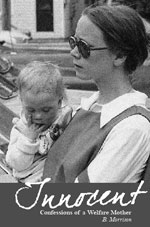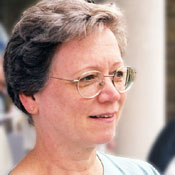
People—me included—love reading memoirs because they are true stories that give us insight into someone else’s experience. Memoirs differ from autobiographies in that they only cover a short period of time, not an entire life. Also, they are understood to be the author’s experience rather than an objective document. Here are five things to consider when writing a memoir:
1. What is the purpose of your memoir?
You can write a memoir as therapy, an effective way to understand and cope with a confusing or traumatic experience. As Abigail Thomas says, “Writing memoir is a way to figure out who you used to be and how you got to be who you are.”
When you are done, put it in a drawer because it is only of interest to you. You can also write a memoir for your children or grandchildren, so that they know something of your life. This is a fine reason for writing a memoir; just remember that it will not be of interest to those who do not know you. If you want to write for the general public, for publication, then the memoir must be about something that they will find interesting.
2. How do you want to structure it?
While there are many interesting ways to structure a book, it is best for a first-time memoirist to stick to the tried-and-true format used in most novels. Some incident initiates the action which builds through a series of scenes to a climax and resolution, after which the protagonist has been changed. Read lots of memoirs to see what other writers have done. I’ve included a list of my favorites below.
3. When should you create an outline?
Authors debate this endlessly. Some start with a detailed outline. Some just start writing and trust that a story will emerge. Some, like me, take a middle path of starting with a general outline that I modify as I go along. Whichever path you take, after completing the first draft you should make an outline to ensure that your scenes are in the right order and that you have only included scenes that move the story forward.
4. How can you get started?
Whether you start out writing by hand or on the computer, that blank page is daunting. One way to start is to keep a journal devoted to your memoir. Another useful technique, especially at the beginning of each writing session is freewriting where you just write anything at all for a set period of time, say ten minutes. Julia Cameron calls these Morning Pages. You can also try writing on index cards, as Nabokov did. Such a small space may seem less scary. Thinking about Memoir, by Abigail Thomas has some excellent exercises.
5. Do you have to tell the truth?
Yes. That’s why they call it nonfiction. Granted, some writers add fictional elements and get away with it. An example is Edmund Morris who got bored while writing his biography of Ronald Reagan, Dutch, and inserted himself, Forest Gump-wise, as a character participating in major events of Reagan’s life. The controversy that ensued helped sell his book, but added to the general distrust of memoir writers. Don’t forget the outcry over the discovery that other supposed memoirs were mostly fiction, such as James Frey’s A Million Little Pieces, Herman Rosenblat’s Angel at the Fence, and Margaret B. Jones’s Love and Consequences. To me, fictionalizing a memoir is like the boy crying wolf: how can you expect people to believe the truthful bits? And telling the truth is the whole power behind a memoir.
Twelve memoirs I recommend:
- Speak, Memory, by Vladimir Nabokov
- The Road to Coorain, Jill Kerr Conway
- Tesserae, by Denise Levertov
- A Romantic Education, Patricia Hampl
- The Enigma of Arrival, V.S. Naipaul
- Infidel, by Ayaan Hirsi Ali
- Hons and Rebels, by Jessica Mitford
- Growing Up, Russell Baker
- Father and Son, by Edmund Gosse
- In Fond Remembrance of Me, by Howard Norman
- The Glass Castle, by Jeannette Walls
- The Glen Rock Book of the Dead, by Marion Winik
* * * * *
 B. Morrison is the author of a memoir, Innocent: Confessions of a Welfare Mother, and a poetry collection, Here at Least. Visit her website and Monday Morning Book Blog. Follow her on Twitter @bmorrison9 and on Goodreads
B. Morrison is the author of a memoir, Innocent: Confessions of a Welfare Mother, and a poetry collection, Here at Least. Visit her website and Monday Morning Book Blog. Follow her on Twitter @bmorrison9 and on Goodreads
You can also check out the Facebook page for Innocent for further discussions about poverty and memoir writing.

This is good, although I'd expand on the final point by adding "tell *your* truth." I don't think there ever has been or ever will be an objective truth, and the more your memoir veers into creative nonfiction, the more leeway you are allowed. Elements of fiction must be employed, otherwise your memoir will be a series of bullet points. By the very act of its creation, there is an artificialty present every bit as invented as fiction.
David, excellent point! Especially in dialogue, the elements of fiction are useful.
Um, I don't necessarily agree with that. I think if the tale is gripping enough, you don't need fiction to beef it up. I know of one memoir which is a verbatim to someone's life – I knew the person pretty well. The manuscript stayed true to life, and the only "fiction" – if you will – was the inflection of the author's tone and opinions. The tale was bizarre enough – unfortunately for my friend – that no fiction was necessary. Because as we all know – truth IS stranger than fiction.
Kat, the line between fiction and nonfiction is a lot fuzzier than most people think. The tools of fiction can be as useful to nonfiction memoirists as they are to fantasists. I don't mean "make everything up", just clothe the bones of your narrative in the trappings of fiction in order to make it read more like a novel. And I;m not defending the likes of James Frey who passed off pretty much *pure* fiction as autobiography. I guess I'm kind of thinking of things like Capote's In Cold Blood, that kind of thing.
Yes, dialogue is a perfect example, Laurie. No one ever remembers the exact words spoken, so some invention is usually necessary. I also think you can merge two characters into one for purposes of making a narrative less unwieldy, especially in accounts in which you've already changed names to protect the guilty, that kind of thing.
Excellent post. Trying to figure out of the memoir I want to write would be of interest to anyone. It would be more of what I went through, what I learned and hope that by someone else reading it, they would learn from my mistakes, too. I have to recommend another book. In the Wilderness: Coming of Age in Unknown Country, which was a finalist for the 1997 Pulitzer Prize and written by Kim Barnes. A great book written about an area and lots of religions I grew up in and around. I can relate to her story very well.
I'm big on reading memoirs, and the several that you post, I've only read one of those: The Glass Castle. I was on the nonfiction track at school for my MFA and I read at least 30 memoirs in one semester: here are some of the ones I remember. Lies My Mother Never Told Me by Kayle Jones; The Tender Bar by JR Moeringer; Another Bullshit Night in Suck City by Nick Flynn; Frank McCourt's Teacher Man and Tis; Stop Time by Frank Conrad; Tender at the Bone by Ruth Reichl; Running with Sicsors by Boroughs. I could go on, but I'll spare you. There are so many good memoirs out there. Then there's mine, My Two Mothers by Patricia Florio, a story about love, family, sharing a daughter with a barren sister. You'll love it!